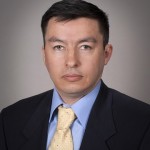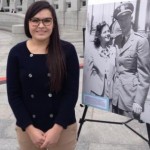Team
Roberto Marín, PhD
Roberto Marín is the Founder of InGear. He obtained a Ph.D. in chemistry from The Ohio University and has published scientific papers in journals like Journal of the American Chemical Society, Inorganica Chimica Acta & Toxicology Research. He started his doctoral studies at Northern Illinois University and transferred when his professor, the late Rathindra Bose, moved his laboratory to The Ohio University. During this time he did EPR spectroscopy work at Ohio State University through a collaboration. After graduating, he was hired as a postdoc at the Federal Swiss Institute of Technology (ETH). And to accommodate that his wife obtained the most prestigious fellowship at Texas A&M University to do studies in Educational Psychology, the family transferred to College Station, home of Texas A&M University. Then, he took a position as an analytical and racing chemist in the toxicology and drug testing laboratories of Texas A&M TVMDL. Currently, Roberto is R&D and Data Scientist with Reservoir Data Systems of Houston.
In 2015 Roberto founded Mentoring Platform for Advanced Education and the website www.ingear.org. This organization’s mission is to connect students from under developed nations to opportunities to study an advanced degree in the United States. The book PhD in the USA is part of this effort. Through exposing the author’s experience the book explains in detail how to be admitted into a graduate program and more importantly, how to get a scholarship. Learn more about Roberto Marin on LinkedIn.
Annalicia Moreno
Anna is an Officer of InGear. She has a bachelor’s in renewable natural resources from Texas A&M University. Anna has accumulated a great deal of experience volunteering and working with non-profit organizations throughout the world. In the Spring of 2013, Anna was awarded the Agriculture and Natural Resource Policy (ANRP) Internship through Texas A&M University working for Representative Ralph M. Hall TX-4 in Washington, D.C. Also in D. C., she worked as the Farmer-to-Farmer intern for 6 weeks with the non-profit Cultivating New Frontiers in Agriculture (CNFA). She has worked and volunteered overseas in New Zealand, Zambia and the Czech Republic. Anna is eager to utilize her experience to facilitate the mentorship process of InGear.org.
Sharon de Marin, PhD
Sharon is an Officer of InGear. has a master’s in reading and special education from the University of Saint Thomas and the University of Houston, respectively. She taught bilingual children in Title 1 schools for 13 years in both Texas and Florida. She began her doctoral studies in Educational Psychology by receiving the prestigious Diversity Fellowship (2010) from Texas A&M University. She was also honored with the Jordan Fellowship for International Research (2013) and most recently the Carolyn Lohman Fellowship (2015), totaling over $100,000. Sharon’s doctoral research aims at investigating the role of meta-linguistic development in both reading comprehension and writing abilities in English among multi-lingual upper elementary students in Lusaka, Zambia. Many former British colonies in Africa employ English as the primary language of instruction, while the majority of students use native languages, such as Nyanja or Bemba, in most social contexts except for academic exchanges. To this end, she focused specifically on complex inter-relationships that develop in tandem with derivational morphemic awareness which include the following: word reading, reading comprehension, spelling, orthographic skill, vocabulary, derivations and decompositions of morphologically complex words, and writing ability with derived word forms. Statistical modeling (HLM) was used to better understand and explain these complex relationships that impact learning in a second language within a multi-lingual context. Lastly, Sharon’s publications include articles in high impact journals. Sharon has a passion to understand and experience different cultures and languages, is fluent in Spanish, has traveled extensively throughout the world.
Educational Affiliations
We are proud to affiliate with representatives and professors from universities across the United States.
Advisers

Narayan S. Hosmane, PhD
Narayan S. Hosmane is an Indian‐born cancer research scientist who made the featured article in NRI Achievers magazine and is currently a Distinguished Research Professor of Chemistry and Biochemistry and an Inaugural Board of Trustees Professor at Northern Illinois University, DeKalb. He received the coveted Humboldt Research Award for senior scientists twice. This award is presented annually, by Alexander von Humboldt Foundation, Bonn, Germany, to scientists worldwide as a tribute to their lifelong accomplishments.
He was the founder of Boron in the Americas (formerly known as BUSA) and hosted the organization’s first meeting in Dallas in April 1988. He has published over 300 papers in leading scientific journals and was ranked by the Institute for Scientific Information (ISI) in the top 50 percent of the most cited chemists in the world from 1981–1997.
In September 2007, at the launch of the NRI Institute’s Washington D.C. chapter, the NRI Institute presented him with its Pride of India Gold Award, in recognition of his outstanding accomplishments. That following January, he was honored by the same NRI Institute with its Lifetime Achievement Pravasi Award and Bharath Samman Medal during the Annual Conference held in New Delhi, India. A fellow of the Royal Society of Chemistry and the American Institute of Chemists, he has also been listed in Who’s Who in the World. In June 2018, Narayan Hosmane was honored with a Special Dedicated Issue of Journal of Organometallic Chemistry, published by the Elsevier Science.
Walter D. Kamphoefner, PhD
Walter D. Kamphoefner earned his Ph.D. at the University of Missouri-Columbia in 1978 and came to TAMU in 1988, where he is now Professor of History. He teaches in the fields of immigration, urbanization, and quantitative methods. He has published widely in the field of immigration and ethnicity, with articles in four languages and three books out in both German and English. One of the pioneers of transatlantic linkage studies with his monograph The Westfalians: From Germany to Missouri (Princeton, 1987), he is currently Director of Graduate Studies at the TAMU History Department. Other research interests include bilingual education and the immigrant language transition.

William H. Koppenol, PhD
Dr. Koppenol is with Swiss Institute of Technology, also known as ETH Zurich. He hired founder, Roberto, as a postdoc when he finished his Ph.D. Willem H. Koppenol obtained a BSc, MSc and a PhD from the University of Utrecht in the Netherlands. After a postdoctoral fellowship at Northwestern University, and faculty positions at the University of Maryland Baltimore County and Louisiana State University he was appointed Professor at the Swiss Federal Institute of Technology in Zurich, Switzerland in 1994.

Marco Palma, PhD
Dr. Marco A Palma is a Professor in the Department of Agricultural Economics at Texas A&M University. Dr. Palma is a Texas A&M Presidential Impact Fellow. His areas of interest are consumer economics, food choices, experimental and behavioral economics, and neuroeconomics. Dr Palma is the Director of the Human Behavior Laboratory (http://hbl.tamu.edu), a transdisciplinary facility that integrates state of the art technology to measure biometric and neurophysiological responses of human decision making. The HBL aims to facilitate the integration of neurophysiological responses to traditional methods of studying human behavior in the social sciences. Specifically, it provides access to state of the art equipment to simultaneously collect psychophysiological data, including eye tracking, facial expression analysis to assess human emotions, neural signals (electroencephalography), galvanic skin response (GSR) heart and respiration rates through integrated stimulus presentation platforms.

Randall R. Rojas, PhD
Dr. Randall R. Rojas is an Adjunct Associate Professor of Economics at UCLA. His research interests entail a highly interdisciplinary endeavor that transcends disciplinary barriers. His work in Economics is predominantly in the field of econophysics and financial engineering where he applies principles from physics, statistics and psychology to the study of financial markets. He is also an active researcher in the field of Cognitive Science where he applies Bayesian methodologies to the modeling of knowledge acquisition by humans (human causal learning). His current work in Astrophysics (mainly astrostatistics) focuses on developing novel statistical analyses of the large-scale structure (LSS) of the universe to better understand its rich complexity and history. Dr. Rojas is also highly committed to his teaching responsibilities and was recently awarded the ‘My Last Lecture Award‘ by UCLA’s Alumni Scholars Club (2015 recipient).

Giselle Sandi, PhD
In 1994, Giselle Sandi received her Ph.D. in electrochemistry and joined Argonne National Laboratory as a postdoctoral fellow. For over 19 years, she led fundamental research at Argonne in the areas of energy storage, materials for hydrogen storage, electrocatalytic membranes, nuclear forensics, sensor development and nanoscale engineering. She was also an adjunct professor at the Illinois Institute of Technology, where she mentored several graduate students, many of whom are now faculty members at national and international institutions. She also founded a postdoctoral program (350 post-docs from 15 different areas of research), a program that, under her direction, was ranked number five in the country by The Scientist magazine and expanded to include the mentoring of junior faculty. The UChicago Argonne LLC Board of Governors honored Sandi with the Pinnacle of Education Award for her contributions and leadership in establishing Argonne’s postdoctoral program.
She is the recipient of the 2004 Luminary Award for Excellence in Science, Engineering, and Leadership, granted by the Hispanic Engineer National Achievement Awards Conference (HENAAC), as well as several awards from the Chicago Chapter of the Electrochemical Society. She was appointed as the Women in Science and Engineering Program Initiator of Argonne in 2012. Through this program, she provided support for the success of women in science and pushed for gender equity for women scientists. She was also a founding member and past president of and advisor to Argonne’s Hispanic Latino Club, which was developed to mentor middle school students and to help researchers serve as role models to students who are interested in STEM career opportunities.
In 2013, Sandi became the Director of the Office of Rush Mentoring Programs, the mission of which is to support the successful transition of junior faculty to independent investigators. Under her leadership, mentoring programs at the university underwent critical transformations, and currently host programs in mentoring for researchers (junior faculty and postdoctoral fellows), educators and educational scholars, and women faculty. She is also the mentoring liaison for the Rush Initiative to Maximize Student Development, a National Institutes of Health-funded Ph.D. training grant for underrepresented minority students. Sandi has written more than 80 research publications and three book chapters, holds three US patents, and has delivered over 100 invited and contributed talks.







